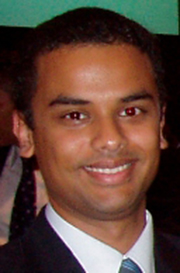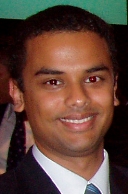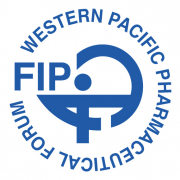
FIP International Travel Scholarship Report
Scholarship Summary
Aaron Luke D’Souza B.Pharm, MPS
Community Pharmacist

Nationality: Australian
D.O.B: 20 April 1981
Aaron D’Souza B.Pharm MPS
39 Corrofin Street, Ferny Grove Q Australia 4055
[email protected]
+61 7 3351 4209
0402 847 941
Introduction
It is hard to predict the value of investing. Whether that investment is one of time, labour or
money; predicting the outcome today breaches the impossible. The recent FIP congress in
Salvador de Bahia, Brazil, is such an event whose investment will only be seen in coming
years.
My main scholarship objectives were to gain insights into the role of pharmacists in the supply
and accessibility of certain drug classes and to observe the practice of pharmacy in other
countries. With these points in mind, I hoped to gain valuable experiences and contribute
better practices of pharmacy in Australia. I believe that the experiences presented by the
Western Pacific Pharmaceutical Forum/FIP Congress Travel Grant fulfilled the objectives I was
pursuing. I believe that the investment made by granting such scholarships provides sound
investments for pharmacy.
The Congress
The varied and wide-ranging topics of the forum presented a difficult schedule to decide on.
My main concerns focussed on novel practice methods and I was drawn to such topics as:
- Innovations in Patient Treatment
- Innovative Health Care Delivery
- Advancing Patient Care
- Pricing Policy in a Global Market
- Using Innovations to Improve Patient Safety
- Counselling, Concordance and Communication – Innovative Educations for Pharmacists.
- Innovations in Pharmacy Practice
Each session provided fresh information as to where our profession is heading and the drive to
evolve pharmacy for the better. I particularly enjoyed a lecture from Jerry Seigel from the
University of Ohio Medical Centre. Dr. Seigel spoke about the ethical decisions involved in
innovative, but costly, medicine usage. This topic gave interesting insights into where
Australian pharmacy may head under the funding structures between private and public health
systems. From this I hope to grasp a better understanding of these ethical dilemmas through
further research and learning.
Whilst each lecture was stimulating, I found that my main learning occurred outside the
sessions in discussing the presented issues with my international colleagues.
Whilst I may sound esoteric, the most important lesson I learnt from my congress experience is
that pharmacists the world over share similar concerns, similar cares and similar issues. An
enduring memory is discussing the benefits of pharmacy professional services with
Pharmacists from Portugal and Sweden. I believe that it is this sharing of ideas and
experience that is the true value of congress participation.
These international links and cross-disciplinary networking is what will fuel innovation and
evolution in the practice of pharmacy worldwide. The congress has taught me the value of
international communication. Evidently this outlook fits perfectly with the concept of the world
as a global village.
My goal for Australian Pharmacy is to encourage my domestic colleagues to invest their time in
travelling to the FIP congress.
International Travel
My journey was as follows:
Auckland -> Buenas Aires -> Salvador Bahia -> Madrid -> Lisbon -> Budapest -> London ->
Johannesburg -> Brisbane
In each country I visited, it was clear that Pharmacies played a large part in people’s lives.
Pharmacy truly is the most accessible health profession. It was interesting that with each visit
to a pharmacy I found there was not much variation in the general duties of the pharmacist.
Dispensing and counselling were the major tasks and the general setup of the pharmacy
stayed the same.
The issue of accessibility to certain drug classes perplexed me. For instance, in Auckland, a
supermarket pharmacy seemed to have the pharmacist as the “keeper” of the dispensary
whilst the rest of the pharmacy became lost in the background of the store. Furthermore it was
confounding that the Pharmacy aisle was kept right next to the alcohol aisle; a totally
unprofessional marriage. Moving to Buenas Aires saw an explosion of pharmacies. Buenas
Aires seemed to have more pharmacies than people! It was comforting to see that Argentine
pharmacy had good systems and a professional focus, with pharmacists dispensing and
counselling in a clinical environment. Accessibility was well controlled, with patient’s knowing
that whilst some drugs could be dispensed upon request, a Doctor’s referral was at the
pharmacist’s discretion. I was impressed with Argentine pharmacy.
A highlight of Madrid was a visit to the Palacio Real Pharmacy Museum which provided an
interesting insight into the days of compounding and herbal dispensing. It reiterated to me the
place of pharmacy in the history of the world. From my observations in Lisbon, Portuguese
pharmacy is in an unhealthy state. Whilst pharmacists have massive prescribing power, their
ability to clinically ascertain the therapeutic need of patients is severely diminished. Upon
speaking to a Portuguese pharmacist, I was told that most drugs can be dispensed without
prescription on a regular basis. For such chronic conditions as Asthma, Hypertension and
Diabetes, this surely puts the patient’s health in jeopardy without proper medical supervision.
It strengthened my resolve to uphold the framework of Quality Use of Medicines even if the
power of the pharmacist to diagnose and treat is undermined. Budapest did not show any
further differences in pharmacy practice.
Professional services and the future direction of pharmacy were shown to me in London,
where I visited a pharmacy offering chronic disease monitoring services. INR, Blood pressure
and cholesterol testing as well as urine analysis and smoking cessation services showed me
what pharmacy could achieve for the public. This experience will provide a model for which I
hope I can contribute to developing professional pharmacy services in Australia.
Conclusion
I truly thank the Western Pacific Pharmaceutical Forum and FIP for their support in granting
me the FIP Congress Travel Grant. Further thanks must go to Mr John Ware OAM for his ongoing
encouragement. My hope and goal is to evolve and orientate Australian Pharmacy
towards professional services and provide a model for the world at large. I believe that from
being awarded the grant I have learned valuable insights and will continue to encourage my
colleagues to invest their time and money into travelling to FIP congresses. This personal
investment and its contribution to international networking will only serve for the betterment of
Pharmacy and the people we care for worldwide.


